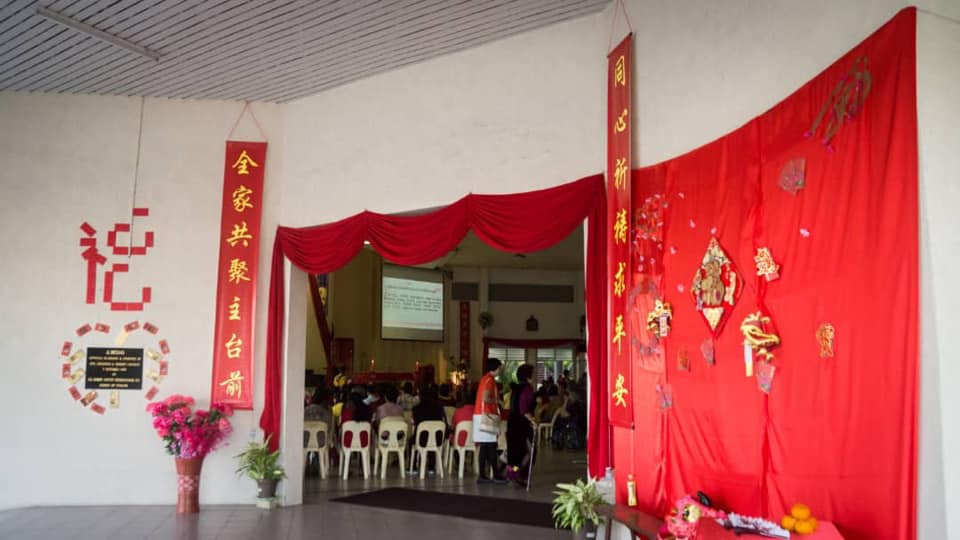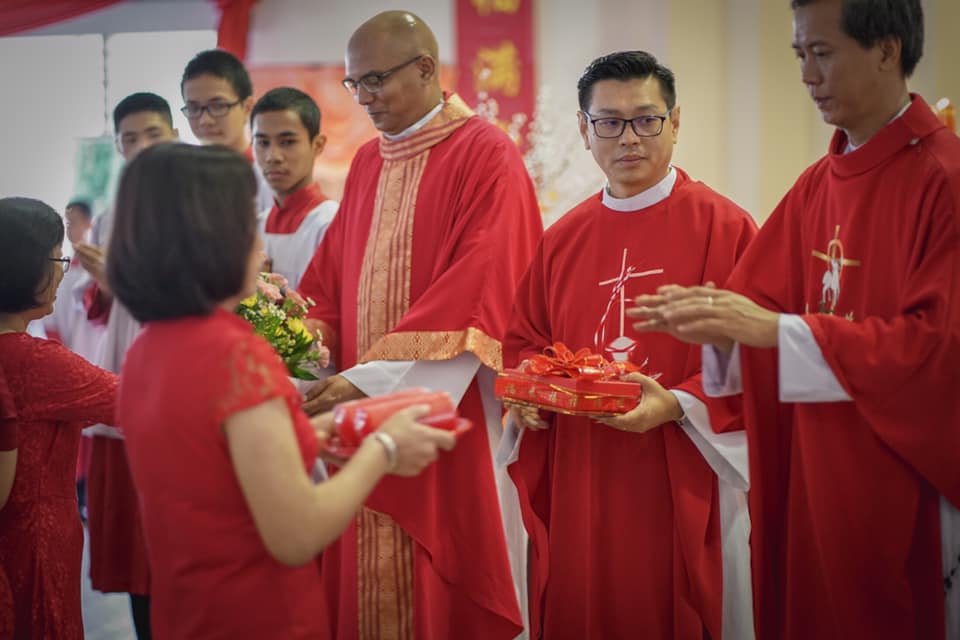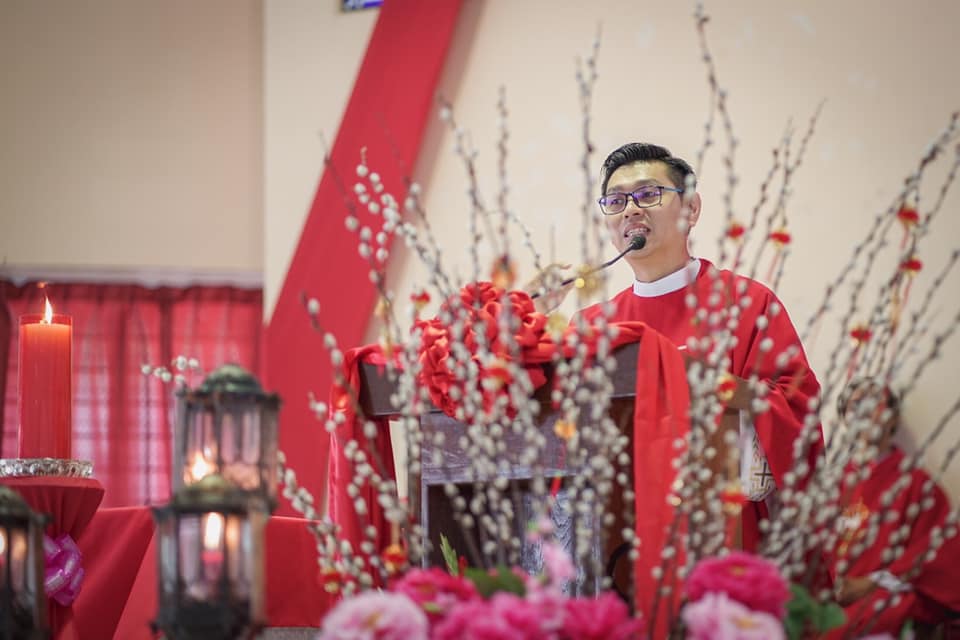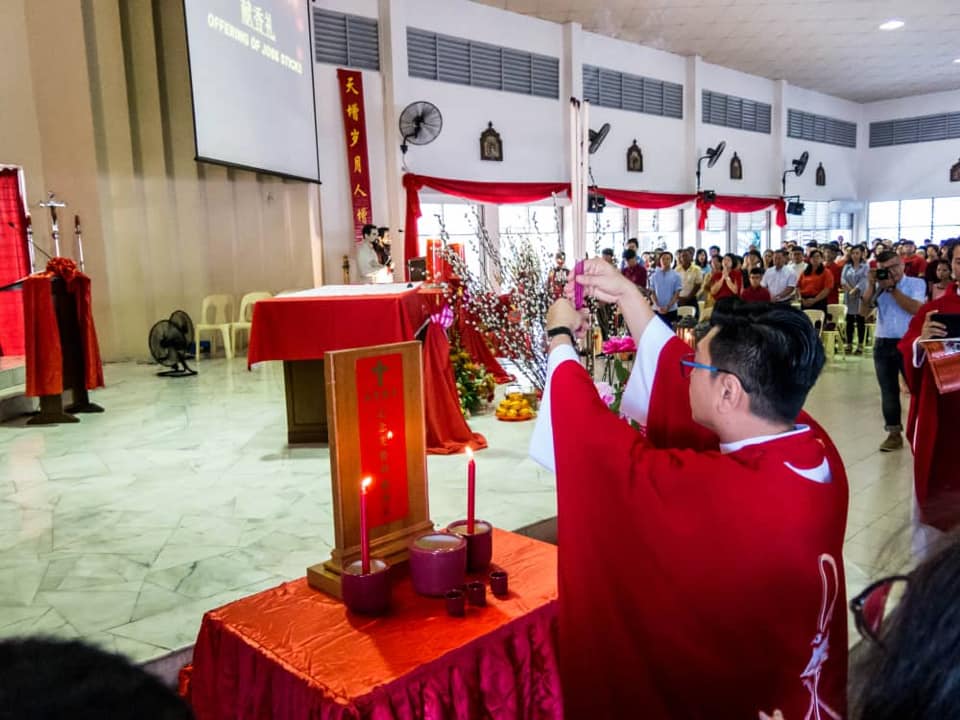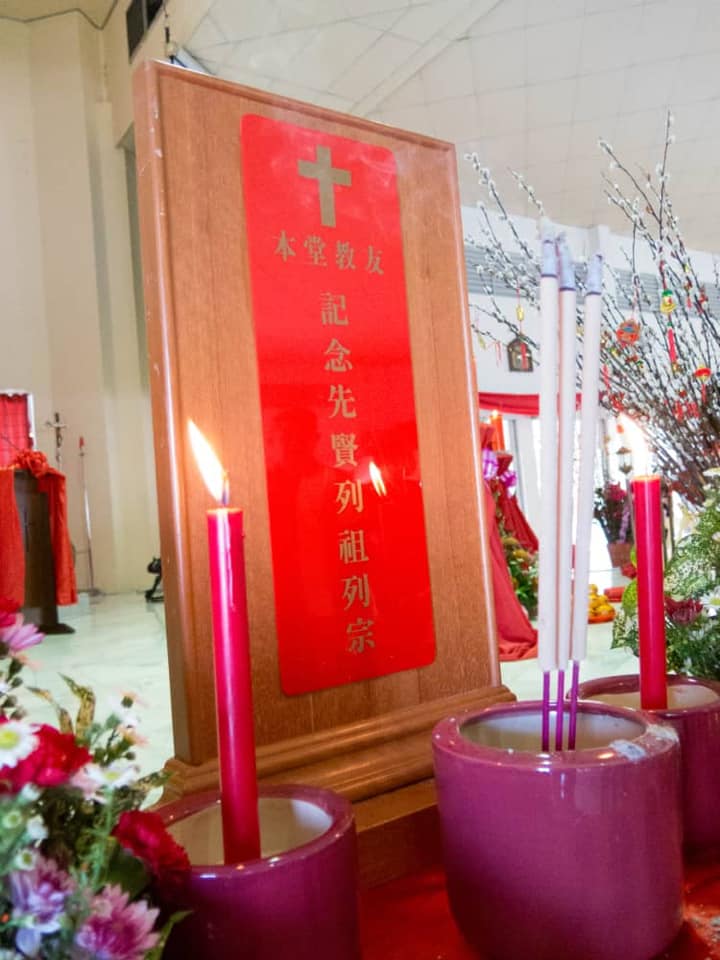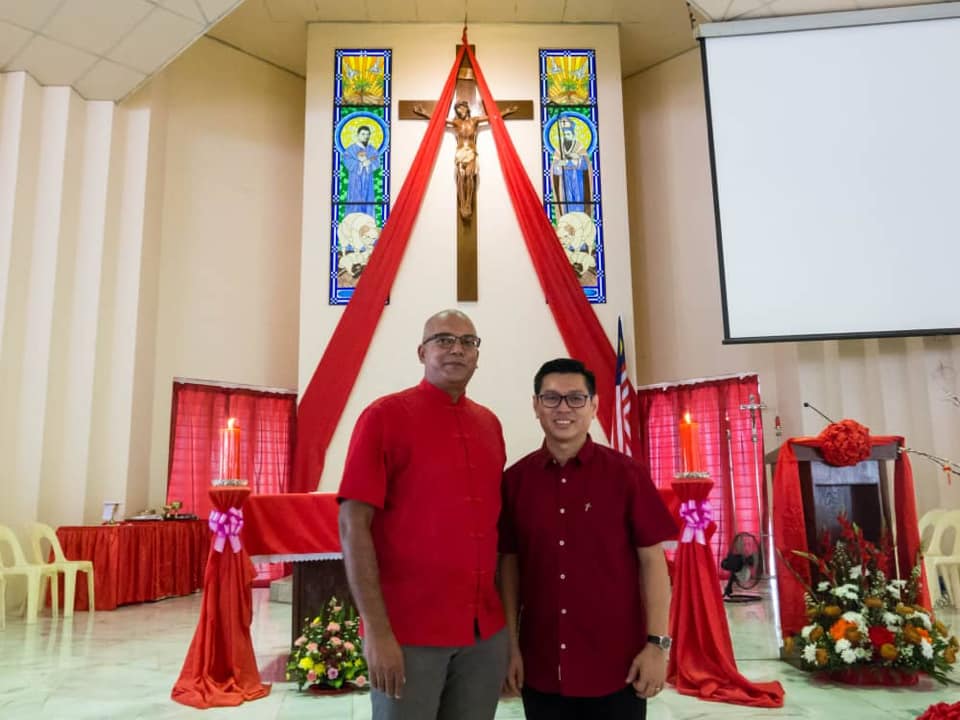Welcoming the Year of the Pig
The Chinese New Year Celebration mass on the 4th of February at SCIC was concelebrated by Rev. Fr. Louis Loi (Assistant Parish Priest) with Parish Priest Rev. Fr. Dominic Santhiyagu and visiting priest from Vietnam, Rev. Fr. Luke.
In his homily, Fr. Louis thanked God for all the blessings for the New Year. He explained that according to the Chinese Lunar Calendar, the pig signifies the end of the cycle. Although, the pig does not represent a good character in the scriptures-the demons were cast into the pigs (Mat 8:28-34) and in the story of the Prodigal son (Lk 15:11-32), the pig is depicted as unclean and a lowly animal. Then ‘why do we celebrate the pig year?’ he asked. He explained that the pig is also a creature created by God and nothing in a pig is useless. The pig eats and sleeps so that it is able to create all the necessary nutrients in its body. We celebrate the pig year symbolizing the sacrifice that Jesus made and every time his body and blood nourishes us. The pig is able to give every part of its body as food. The pig is not a friend of the demon although the demon was cast into it. The pigs fell into the sea to die instead of being slaves of the demon. The pigs in the prodigal son story reminded the son of the generosity of his father and made him return home. Finally he prayed that the New Year would be a great blessing.
Commemoration of the ancestors
The commemoration of the ancestors took place in order to honour and respect the deceased members of the family. Pope Pius X11 on 8th December 1939 allowed the commemoration of the ancestors: This 1939 instruction, known as “Plane compertum est” was approved by Pope Pius XII. It declared that rituals performed on the occasion of funerals or commemoration for the dead are conducted to demonstrate honour and respect to the ancestors. It also stated, as a general acknowledgement: “Today, it is clear that, in the East, some ceremonies, although of great antiquity and originally connected with pagan rites, nowadays, on account of changing customs and ways of thinking, have come to have a merely social significance, out of respect for one’s ancestors…” (www.catholicsg.info). In the book of Sirach 44: 1-15, there is a hymn in honour of ancestors.
During the commemoration, the following gifts were offered at the table with the ancestral tablet: joss sticks, 3 cups of wine for remembering of ancestors, 2 baskets of flowers to represent love for ancestors and 2 tray of fruits to represent admiration.
After that was blessing of mandarin oranges and distribution of oranges and “angpows”.

